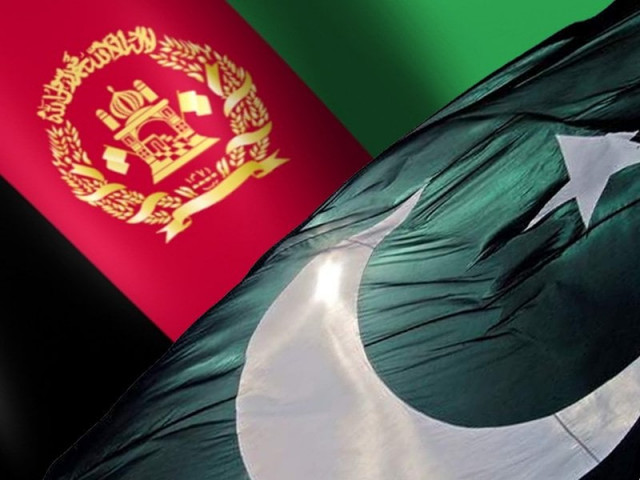Post-US Afghan pullout: Need for joint Pak-Iran strategy stressed
Experts call for enhanced cultural collaboration, heritage tourism to bring people of the region closer

Development Communications Network (Devcom-Pakistan) DTN and Tehran International Studies and Research Institute (TISRI) jointly organised a webinar on Sunday on ‘Iran-Pakistan diplomatic relations: opportunities for cooperation and convergence.’
The experts from both sides who participated in the event noted that Pakistan-Iran diplomatic relations are based on the commonalities of language, literature, culture and religion that can enhance bilateral strategic and trade collaboration for a win-win situation. Post withdrawal of US troops from Afghanistan, the two countries should have a mutually agreed strategy to handle the emerging situation of security and peace in the region.
The panel of experts included Senate Standing Committee on Foreign Affairs Chairman Senator Mushahid Hussain Sayed, former ISI chief and geopolitical analyst Muhammad Asad Durrani, research analyst and former ambassador to Iran Asif Durrani, Iran’s former ambassador to Pakistan Dr Mashaallah Shakeri, Iran’s Cultural Counsellor Ehsan Khazaei, South Asian Studies Director at TISRI Dr Somaye Morovati, and Devcom-Pakistan Executive Director Munir Ahmed who also moderated the discussion.
The participants from both sides expressing their views called for enhanced cultural collaboration and heritage tourism to bring the people of both countries closer and restore the extremely close and very cordial relationship that existed between Islamabad and Tehran prior to 1979.
The speakers said youth engagement in a variety of sectors is imperative. In addition, CPEC could be another economic and trade bond for closer Pakistan-Iran ties. A youth expedition from Chabahar to Gwadar would lead to better understanding between the people of both sides and open many vistas of collaboration.
Also read US president presses Pakistan as he announces end to 'forever war' in Afghanistan
Senator Mushahid Hussain Sayed said three factors will promote Iran-Pakistan ties in the future. First, CPEC and regional connectivity are key to both countries economic future. At the same time, the Iran-China deal will prove a plus for Pakistan, securing her western flanks and help in Gwadar por’s development. Second, with instability likely in Afghanistan post-US withdrawal, counter-terrorism cooperation and border management will bring both countries closer as both seek stability in Afghanistan. Third, with pressures from the US on Iran and Saudi Arabia, Pakistan can play the role of mediator on all issues between Tehran and Riyadh.
He said Pakistan supports the revival of Iran's nuclear deal and lifting of all sanctions on Iran. One new plus point is the closer rapport between the military and security establishments of both countries.
Lt General (retd) Muhammad Asad Durrani said Pakistan-Iran relations have generally been good with their peak being before the Iran revolution. During the Khomeini era, the US, then our close ally in Afghanistan, wanted our relations downgraded because of the siege of its embassy in Tehran, but Pakistan refused and ever since represented Iranian interests in Washington.
He said after the American invasion of Afghanistan, the two countries joined hands with Russia, China, and Turkey to manage the chaos post US withdrawal. Balancing our relationship with Saudi Arabia and Iran has been a challenge. Some bigots have fanned sectarianism at times, but a commonality of interests prevailed.
Ambassador (retd) Mashaallah Shakeri said Pakistan and Iran enjoy centuries-long relations in cultural, social, politics and economic and trade spheres. However, developments in both countries since 1979 had drastic consequences.
Ambassador (retd) Asif Durrani said the strength of Pakistan-Iran relations is they have no dispute, though they may differ in perceptions on specific issues. Both countries have always cooperated bilaterally and at international forums. In 2008, Pakistan supported Iran in the International Atomic Energy Agency (IAEA) while India cast a negative vote against Iran. Pakistan fully supports Iran’s right to access nuclear technology for peaceful purposes.
He said both countries face foreign-inspired terrorism and separatism and live in insecure neighbourhoods facing varying degrees of external pressures. From the beginning of its revolution, Iran had to face American wrath while Pakistan is a victim of Indian hostility and external pressures. The Iran-Saudi rivalry is a challenge for Pakistan’s diplomacy. A Saudi-Iran rapprochement is needed to lower tensions in the Middle East.
Reham Khan suggested perception management to both countries and engaging youth for cultural collaboration and joint ventures in as many fields as possible. The good things from both sides are shared to negate their enemies’ propaganda.
Dr Somaye Morovati said Iran and Pakistan have a long history of cooperation which would provide the support for enhancing economic, commercial and political relations between both countries. The US has been an influential foreign actor in Iran-Pakistan relations. The issue of India-US strategic partnership and the crisis in Afghanistan requires Pakistan to maintain a superficial relationship with the US. Iran’s foreign policy in the face of sanctions is to strengthen relations with its neighbours despite US designs against it.
Published in The Express Tribune, May 24th, 2021.


















COMMENTS
Comments are moderated and generally will be posted if they are on-topic and not abusive.
For more information, please see our Comments FAQ